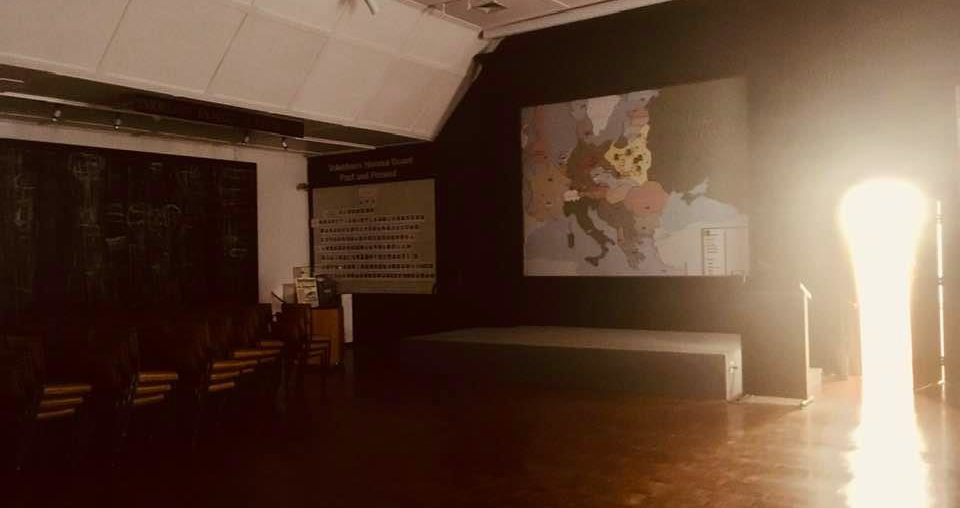29 March 2020
Dear reader,
Firstly, and most importantly, how are you? Really, how are you?
What a different world we are living in! I keep seeing the word ‘unprecedented’, which it is, but for this word evokes a particular meaning. As Museum Director of the Jewish Holocaust Centre, this is a word we usually use when talking about the Holocaust. I never imagined I would live in a time that would be called ‘unprecedented’. Or perhaps, more correctly, I always hoped that I would never live in such a time.
Other words come to mind, ‘surreal’ being the one at the forefront. We are walking around, suddenly keeping our distance from each other, sort of going about business as usual, but nothing is usual anymore. We are staying away from our beloved parents and grandparents. People have lost jobs. Shops have closed their doors. My colleagues are working from home. People are self-isolating or in forced quarantine. No-one knows what is coming next.
We are obsessed by dark statistics and we are distracting ourselves with dark humour. We go from anxiety to laughter in a split second while trawling social media.
But none of this is really why I am writing to you, dear reader.
The day we closed the doors of the Holocaust museum to schools, I cried. The day we sent our staff and volunteers home, and I went upstairs to switch off the lights in the Smorgon Auditorium, I cried again. This hall, empty now, was witness to so many powerful stories. Hundreds of thousands of students heard eyewitness accounts from survivors – and so many others have gathered there to listen to experts discussing a wide variety of Holocaust-related issues. Basic, primal, human interactions – people sharing words and learning from each other. It was hard to turn off that light, and I can’t wait for the day that I can turn it on again.
There are many reasons for my tears – after all, I have worked at the Centre for 18 years. It is overwhelming and complex and deep. But in truth my main concern right now is for the Holocaust survivors in our community who are currently the most isolated of us all. A few have connection through social media, but most don’t. Some have partners or are living with family, but others don’t. These are our friends and we are all worried about them.
We created a list of the survivor volunteers, and my colleagues and I are calling them. When I spoke to Philip Maisel, aged 97, he said to me, ‘Our problems in the past were much, much bigger.’ And then he chuckled. Their resilience and optimism is something to behold. One elderly survivor has vowed not to succumb to coronavirus. He said, ‘I am ready to die, but not of this virus.’ Equally there are others who are really feeling the solitude and just don’t want to stop their daily outings and contact with their loved ones. And for others, tragically, being isolated takes them back to their childhood experiences of being in hiding, cut off from family and friends. This is devastating to consider.
I have a wonderful team at the Holocaust museum, so we devised a plan. We know how much our survivors love to receive letters from students. They proudly show them to us and insist we read them. Their faces beam with pride. Out of their nightmares they connect to young people with lessons for the future. Seemingly overnight, they have been stripped of this sense of purpose by Covid-19. So we asked ourselves, how can we encourage members of the public to send messages to our survivors? Ideally we would love people to send old school letters, as we know the survivors love these, but any message will do. We will make sure they get them.
That is why I am writing a letter to you, directly. I want you to write to a survivor, let them know that you care. I want you to visit our website, listen to a short testimony, and write a personal note to that survivor, explaining how their words touched you personally, and how their resilient spirit has inspired you in this difficult time. This will mean so much to them.
The exact details can be found on the Jewish Holocaust Centre website and Facebook pages and I invite you to share these details, should you wish to pass it around. And please do. Tell your family, tell your friends, tell strangers. Shout it from the rooftops, we need them to hear us now.
I have been re-reading ‘The Plague’ by Albert Camus. He concludes, ‘what we learn in a time of pestilence: that there are more things to admire in men than to despise.’ By practicing acts of kindness and decency in the face of adversity we can uphold this.
Meanwhile, in this unprecedented, surreal time: stay healthy, stay sane, stay connected.
I look forward to receiving your letters and passing them on. It will be the antidote to my sorrow.
Warm regards,
Jayne Josem
Find Survivor Connect at the Jewish Holocaust Centre here


Comments are closed.